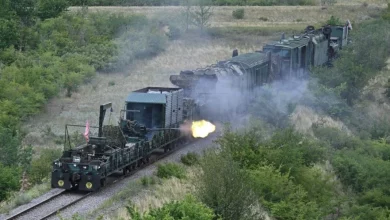Analysis: Fresh US manoeuvers in the Asia-Pacific…

One of the new initiatives within the United States’ “encircle China” strategy in the Asia-Pacific was a trilateral summit held on August 18th at “Camp David” in the state of Maryland.
The summit was attended by U.S. President Joe Biden, Japanese Prime Minister Fumio Kishida, and South Korean President Yoon Suk-yeol. During a joint press conference with the other leaders, Biden expressed his satisfaction with the outcomes of the summit, stating, “If I look happy, it’s because I am. It was a fantastic meeting.” Biden also emphasized that they had elevated trilateral defense cooperation in the Asia-Pacific to an unprecedented level and hinted at the initiation of annual multi-domain military exercises within this cooperation.
Though not explicitly stated, it is evident that the summit was related to the “strategic encirclement of China.” According to some analysts, the Camp David Summit represents the first step towards an “Asian NATO.” The United States’ military-oriented initiatives in the Asia-Pacific are not limited to the Camp David Summit, of course. The “Quad Security Dialogue” involving Australia, the United States, Japan, and India, as well as the “AUKUS Alliance” signed by the United States, the United Kingdom, and Australia, are also reflections of the same strategy.
In addition to the United States’ efforts directed at island nations in the Pacific, the new relations it has been developing with the Philippines are another part of this strategic chain. Earlier this year, several agreements were signed between the United States and the Philippines. These agreements provide the United States with increased access to four more military bases in the Philippines, raising the total number of U.S. military facilities in the country to nine. According to the agreements, three of the new U.S. bases will be located on islands in the northern Philippines.
In a recent news report by “Reuters,” it is mentioned that the U.S. military is conducting discussions to build a port in the northernmost part of the Philippines, facing Taiwan. According to the report, this port will be constructed in the Batanes Islands, which are closer to Taiwan. Notably, the Batanes Islands are strategically located along the “Bashi Channel,” a critical waterway that separates the northern islands of the Philippines from Taiwan. Analysts suggest that despite being touted for ‘civilian’ purposes, this port is a closely linked military-strategic choice, given its proximity to American bases in the country. A final decision on the port is expected to be made by October or year-end.
Taiwan has become a focal point in the “new Cold War” between the United States and China. There is an ongoing propaganda campaign in the U.S. suggesting that China may invade Taiwan in the near future. Therefore, agreements with the Philippines carry significant importance from China’s perspective.
Meanwhile, there are reports of U.S. efforts to involve New Zealand in the “AUKUS Alliance.” The “AUKUS Alliance” was initially signed between the United States, the United Kingdom, and Australia, with all three being English-speaking countries (part of the “Anglosphere”). The stated purpose of “AUKUS” was the construction of nuclear-powered submarines as requested by Australia. However, it is quite clear that the primary objective is related to isolating China.
In 1985, the international anti-nuclear action group “Greenpeace” had its research vessel, the “Rainbow Warrior,” sabotaged by French secret service agents in Auckland Harbor, New Zealand. This incident resulted in a political crisis between the two countries, leading the New Zealand government to ban the use of ports and waters by nuclear-powered or nuclear-armed vessels.
On the other hand, New Zealand does not wish to align with either side in the “new Cold War” between the U.S. and China. However, a leaked report, reportedly prepared by New Zealand security authorities, suggests that the country should consider joining the “AUKUS Alliance.” Still, the majority of New Zealanders argue that China does not pose a threat to their nation. Therefore, any decision regarding “AUKUS” may be left to the new government taking office in November 2023.





